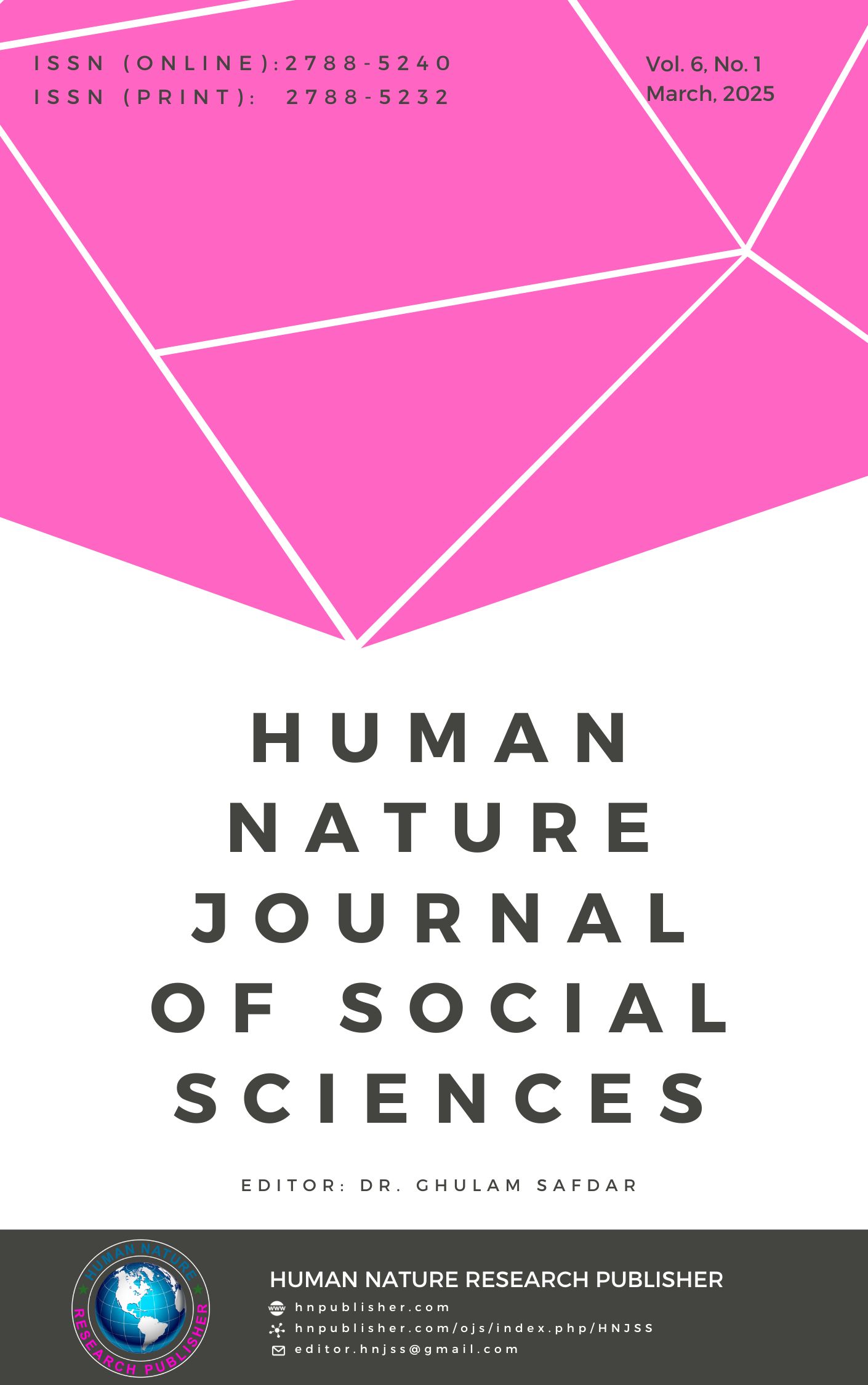Unveiling the Shadows of PTSD within Hijra Community: Revathi's a Journey through the Margins
DOI:
https://doi.org/10.71016/hnjss/j58jba38Keywords:
Post-Traumatic Stress Disorder (PTSD), Cultural Stigma, Systemic Oppression, Mental Health, Social Exclusion, Trauma, Culturally Competent CareAbstract
Aim of the Study: This paper primarily aims to understand Post-Traumatic Stress Disorder (PTSD) within the Asian hijra community, which includes transwomen, intersex individuals, and gender-nonconforming men. The PTSD of its members visibly evidences their chronic structural stressors of discrimination, violence, stigmatization, and internalized self-hatred. The absence of culturally competent mental health support and the societal pervasiveness of invisible hijra vulnerabilities are also discussed, calling for greater inclusion within the dynamic of responsive mental health practices.
Methodology: In this framework, the theoretical basis of the study relies on Minority Stress Theory (Frost & Meyer, 2023) and Discourse Analysis (van Dijk, 2015). The analysis is based on autobiographical texts-the Truth About Me by Revathi-and supplemented with secondary data from empirical and psychological studies. Discourse Analysis examines hijra experiences in reference to language, culture, and policy, while Minority Stress Theory explains the psychological effects of social exclusion.
Findings: Studies show that hijras face ongoing stress from systemic oppression, leading to complex trauma and post-traumatic stress disorder. Even the cultural stigma and insensitive mental health systems that have disregarded their issues have further disallowed their sufferings from being true; added to that is the myth of hijra resilience that can practically silence their very pain when they relate their stories. Such conditions thereby lead to under diagnosis and lesser care.
Conclusion: Accordingly, the hijras have a different trauma owing to their cultural erasure, exclusion, and unavailability of healthcare. Inclusive and culturally informed mental healthcare is recommended to support well-being and to restore their dignity and rights.
Downloads
Published
Issue
Section
License
Copyright (c) 2025 Mehwish Fatima, Mariya Iftikhar, Rukhsar Anwer, Ishmal Fatima (Author)

This work is licensed under a Creative Commons Attribution-NonCommercial 4.0 International License.








